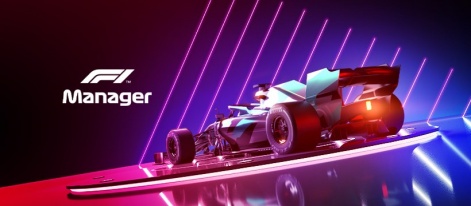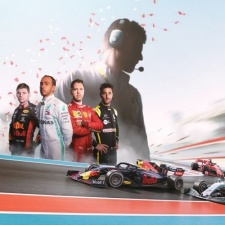The process of creating a game is difficult, long, and often stressful, but it's one that can reap many rewards alongside actually seeing your ideas come to life.
No matter the size of the game or how long it ultimately takes to make, each new title involves a lot of hard work, tough decisions, and a little bit of luck before it even gets out the door and onto devices. And in the current mobile games market, that's only the first step to making the title succeed.
To highlight all of the extensive work that often goes on unseen in the background, PocketGamer.biz is reaching out to developers to learn more about the general rigmarole of releasing a video game, with our 'Making Of' series.
This week we spoke with Hutch game director Corentin Delprat regarding the development and release of F1 Manager.
PocketGamer.biz: Can you start off by telling us about F1® Manager?
Corentin Delprat: Absolutely. F1 Manager is a free-to-play racing simulation title that lets players be a team principal and manage their own fictional F1 team. It was developed in an official partnership with Formula One and features every official team, driver and track in the FIA world championship.
The idea is to build a loadout of drivers and car components that you will carry in races against random live opponents. The game is completely multiplayer, so you always have another manager working against you on top of all the official teams; there’s a bit of a gladiatorial feel to it.
We had to spend the first couple of months weathering the storm while reinforcing the back-end systems and learned a great deal in the process.Corentin Delprat
Where did the initial idea for the game come from?
The concept has its roots in traditional motorsport management sims like the Motorsport Manager series. On top of which, we added the now classic “Clash” metagame: supply crates containing upgradable assets are rewarded for victories, and players can unlock and enter increasingly difficult series of circuits that require higher entry fees with bigger rewards for a win.
We dissected what makes a Formula One race exciting and tailored it for mobile in a format that’s quite "snackable" and lets you experience it from wherever you are and in under five minutes. We really wanted it to be as accessible as possible; from using a portrait orientation and requiring minimal input in order to make it easy to play when multitasking, to steering the metagame away from complex or overly technical management mechanics.
How long did development take, and how many people worked on the game?
The whole development lasted a little over a year, though we built the game in stages with an incrementally bigger team as we really believe in lean development and wanted to validate every stage before moving on to the next one.
So, we started with a skeleton team of three and then slowly increased it until reaching the current size of around 20 people, with many of the latest additions actually happening after launch such as marketing and community support, product managers, etcetera.
Was the game soft-launched? If so, what did you learn from the soft launch period, and what were the biggest changes you enacted as a result?
We soft-launched a totally unbranded version, as we could not release any official F1 content that had not already been made public. Thus, we had no idea what the impact of the Formula One IP would be until the very last moment. We mostly used the data to validate our ideas and KPI targets, test the performance under real-life load conditions and fine-tune the difficulty.
The biggest data-driven change was probably the qualifying mechanic. Our first version was quite technical and required players to do as many qualifying laps as possible within a limited time while tweaking their car setup each time to try and reduce their lap times.

We thought that it was a bit of a drag before starting a race, and greatly increased a session time that already felt too long. Our tests showed that automatically simulating qualifying with the best possible setup was more engaging and also had the benefit of cutting off a few minutes from each race, so the decision to pivot was easy.
At what stage in development did you feel you had a game that you were happy with?
About a month before the worldwide launch, there was a point when we reached the “mythical” 40/20/10 retention that we thought was impossible. The audience was mostly self-selected at that point since we had not started to acquire users yet, but this moment, coupled with stellar conversion metrics, was when we knew we really were onto something.
How happy are you with the game's launch so far?
We couldn’t be happier! The game is now the number one F1 product on mobile and keeps performing better and better as we continue to service it. Support from the platforms has also been amazing.
What was the biggest challenge you had to overcome during development and with addressing a new season every year?
F1 Manager was our first ever real-time multiplayer game and developing that technology with a new team was probably our biggest challenge. There were many hurdles that we had not anticipated and as a result, the worldwide launch got a bit bumpy. Server costs were too high to be sustainable and the gameplay simulation was choppy and sluggish at times. We had to spend the first couple of months weathering the storm while reinforcing the back-end systems and learned a great deal in the process.
Users are typically aged between 24 to 44 and are often lapsed PC or console racing game fans that no longer have the time to engage in those experiencesCorentin Delprat
As far as addressing new F1 seasons, the biggest question mark was the change of driver line-ups and rankings. Historically, sports games would just release a new title with updated content every year and players would simply get the new version. But with F1 Manager being live, we had to find a solution to replace in-game resources that some players already owned and cherished while obviously remaining fair to everyone.
In the end, we took the decision to annualise our content with a season reset. In a nutshell, players could collect points in preparation for the upcoming season and increase their progress based on how they did in various categories throughout the whole year. The higher their score, the more rewards and perks they could take with them to give them a head start in the new season.
Once the transition happened, everybody’s in-game progress got reset to create a level-playing field and the tracklist got reshuffled. A whole new set of drivers and car components were introduced and last season’s team got deprecated as a legacy team that could still be used a few times a day but not in Grand Prix events anymore. It was a wild bet. as it is not something that is regularly done in the industry but turned out to be very exciting for the community as well as a great tool to re-engage our lapsed players.
Has the Covid-19 pandemic impacted ongoing development in any way?
We were already working from home two days a week, which is a company policy that was implemented years ago, so we already had all the tools and processes in place to face an extensive lockdown. On top of that, a lot of extra measures were put into place to address the mental health strain coming with such a situation and make sure everyone was able to cope.
However, the most impactful effect was probably the disruptions that happened to the real-life F1 season. We could not send photographers to gather references needed for us to model the new circuits and we had to react to a lot of last-minute calendar changes as restrictions were evolving around the world.
Who do you find to be the game's main audience?
The game has been pitched at a subsection of the 500 million global F1 fans that we identified as being highly engaged in the sport's strategic aspects, as well as playing games on mobile as their primary platform.
The biggest part of our player base is located in western Europe, the US, and Brazil. Users are typically aged between 24 to 44 and are often lapsed PC or console racing game fans that no longer have the time to engage in those experiences anymore due to pressures of career and family. The bite-size and multi-session per day design of F1 Manager complements their lifestyle and gives them a new dynamic way to follow the race weekends and engage with the sport.
How are you approaching live ops? What can you tell us about your plans in terms of updates?
We run Grand Prix events synced with the real-life calendar races. They are three-staged, five-day long tournaments between hundreds of players and usually generate most of our revenue as they are quite competitive and come with event-specific items such as boosts. Apart from this, we have a pretty standard toolset that lets us create and schedule special offers, discounts and whatnot.
Can you provide any download or financial data? Any DAUs or other stats?
These days there are around 350,000 daily active users, which is roughly twice the amount we had a year ago. More so, we recently reached 12 million downloads since launch.
What can you tell us about your future mobile projects?
We are primarily focusing on our live games and communities at the moment, but of course, we always want to have something else bubbling away. There are a couple of early ideas in the works at extreme ends of the racing spectrum: something new for petrolheads, and another project where cars fit in a more unusual and entertaining way.






















